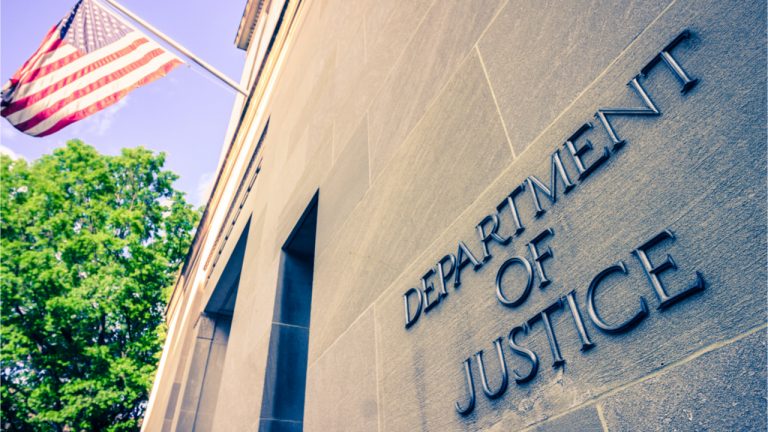The U.S. Department of Justice (DOJ) is seeking a trial attorney to help with the federal executive agency’s Digital Currency Initiative. The DOJ posted a job listing on the justice.gov web portal and the hired individual is expected to serve as an “expert on digital currency and blockchain technologies for the criminal division.”
DOJ’s Money Laundering and Asset Recovery Section Needs a Digital Currency Trial Attorney
The DOJ’s criminal division aims to hire an experienced and permanent attorney to work at the Money Laundering and Asset Recovery Section (MLARS) located in Washington, DC. Remote attorneys will be considered if they qualify for the Digital Currency Initiative (DCI) job listing. MLARS’ main goal is to “take the profit out of crime” and it accomplishes this mission in various ways.
The new hire will help bolster the MLARS mission in criminal prosecutions, forfeiture actions, investigations of financial institutions committing money laundering, transgressions against the Bank Secrecy Act, U.S. sanctions, alongside cybercriminals, and the drug cartels.
Not only is the person applying expected to “serve as a subject matter expert on digital currency and blockchain technologies for the criminal division” but the individual must also develop and execute “training and educational materials relating to digital currency.”
Moreover, the applicant is required to have “extensive knowledge” in regard to crypto assets and blockchain technology and knowledge of money laundering and asset forfeiture law. The starting annual salary for the DOJ’s new crypto position is $144,128 with a cap at $172,500 per annum.
The individual should have a background in “investigating criminal matters” and “sensitive law enforcement techniques.” Furthermore, five years minimum experience as a criminal prosecutor or trial attorney is mandated as well.
“Periodic domestic and international travel may be required,” the DOJ announcement concludes.
What do you think about the DOJ’s looking for a digital currency trial attorney for its criminal division? Let us know what you think about this subject in the comments section below.





















